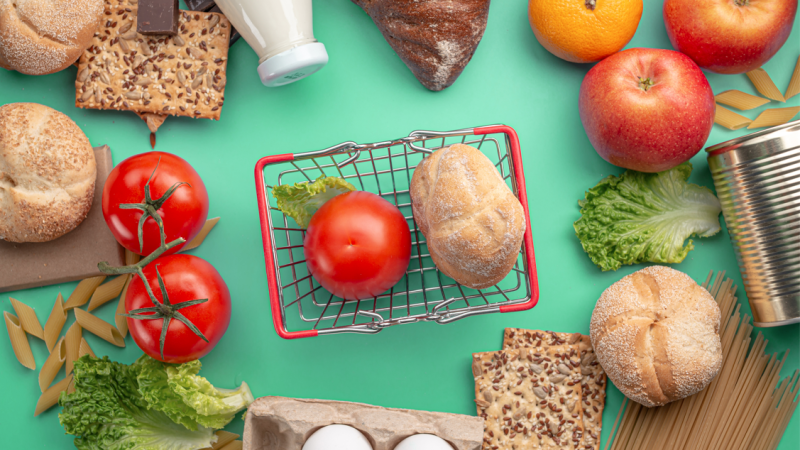Milestone Achievement! Too Good To Go Rescues 1 Million Bags of Food from Waste
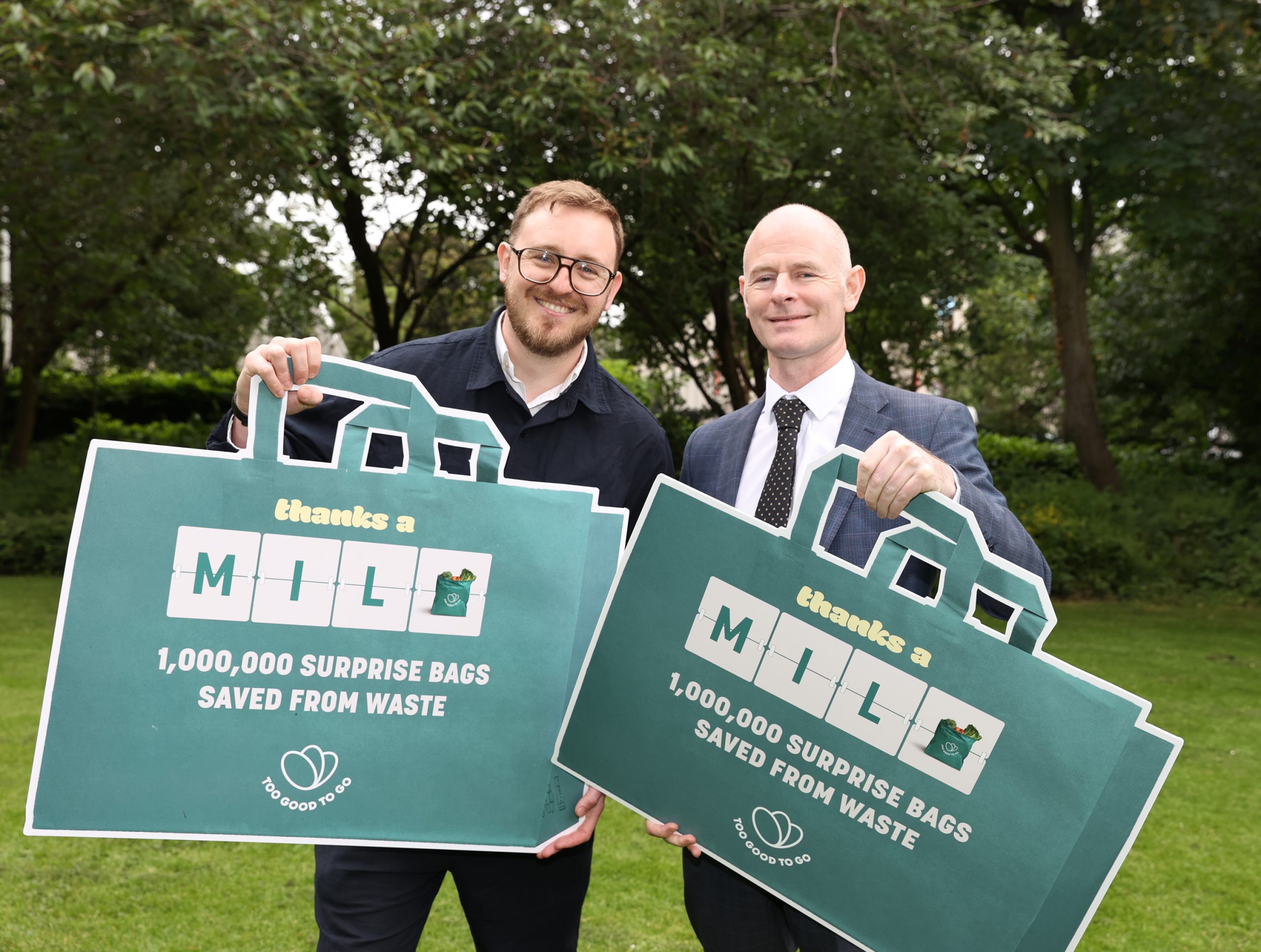
The food waste app has rescued 1 million Surprise Bags – enough to stretch from Sligo to Cork!
Too Good To Go, the social impact company behind the world’s largest food saving app, announced that it has saved an incredible 1 million Surprise Bags of food in Ireland. The announcement launch was attended by Minister Ossian Smyth, Minister of State with responsibility for Public Procurement, eGovernment and the Circular Economy and Too Good To Go co-founder, Jamie Crummie.
The free app enables users to purchase food from local eateries, shops, and cafes across Ireland that would otherwise be discarded at a significantly reduced price. Saving 1 million Surprise Bags is equivalent to avoiding the yearly CO2e emissions of 290 Irish citizens, saving 427 Olympic-sized swimming pools worth of water, and preserving the yearly land use equivalent to 392 football pitches. If you laid out all 1 million Surprise Bags, they would stretch from Sligo to Cork!
Launched in Ireland in 2022, Too Good To Go has rapidly become a key player in the country’s sustainability efforts, amassing a dedicated user base of 590,968. Over the last year and half, the app has expanded its network by welcoming over 1,000 new partners including the likes of Aldi Ireland, Boojum, Supervalu, Krispy Kreme and Moldova Stores, bringing the total number of participating businesses to 2,191. The most active engagement comes from counties Dublin and Galway, where communities are especially committed to reducing food waste.
Also attending the launch was Joe Mooney, Sponsorship Manager, Aldi, Too Good To Go’s biggest partner in Ireland, exemplifying how major retailers can effectively contribute to sustainability initiatives and the fight against food waste.
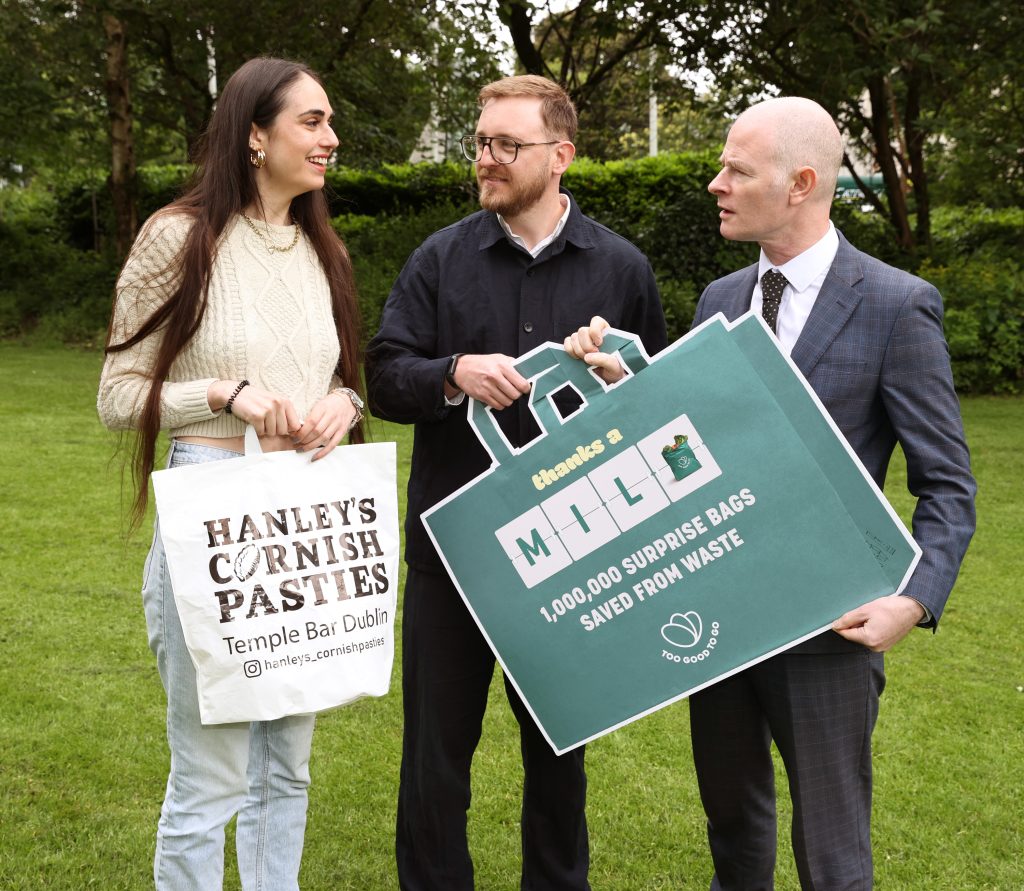
Commenting at the event, Joe Mooney said: “Our partnership with Too Good To Go has not only been successful in addressing food waste, but has also allowed us to offer even lower prices to our customers. We are committed to minimising food waste and providing our customers with the most affordable range of quality products which makes this partnership work so well. Thanks to the excellent work of all our colleagues in stores nationwide, we’ve provided over 175,000 Surprise Bags to our customers since the partnership commenced.”
Popular burrito chain, Boojum, also celebrated their contribution to this milestone with Head of Marketing Paul McCullagh saying, “We’re delighted to have played our part in achieving such a significant milestone with Too Good To Go in Ireland. The concept of the app is fantastic, the team behind it are fully immersed in their mission and crucially the partnership has enabled us to push on with and deliver against our own sustainability ambitions.”
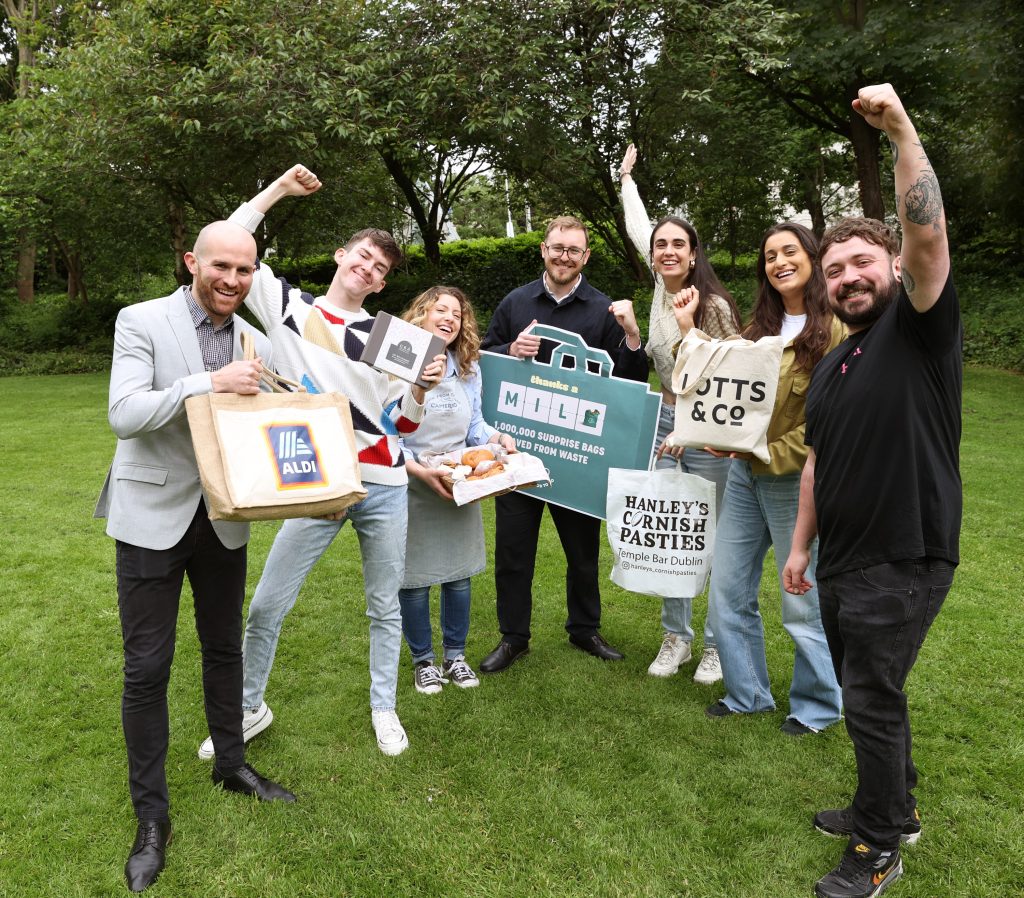
The app also has many independent partners across the country (local coffee shops, restaurants, and bars), including Camerino, Hanley’s Cornish Pasties, Gra Chocolates, and Lotts & Co., who were also in attendance to celebrate the milestone today.
Minister Ossian Smyth, Minister of State with responsibility for Public Procurement, eGovernment, spoke at the event in support of this milestone: “I am delighted to celebrate this significant milestone with Too Good To Go. Their work aligns perfectly with our national goals for sustainability and the circular economy. Saving 1 million bags of food not only helps to reduce waste but also demonstrates the power of community action in addressing environmental challenges.”
Jamie Crummie, co-founder of Too Good To Go, said, “Reaching the milestone of saving 1 million Surprise Bags in Ireland is a testament to the collective effort of our Irish partners and users who are committed to combating food waste. This achievement not only highlights the impact we can make together but also inspires us to continue expanding our reach and efforts.”
How does Too Good To Go work? The free app enables users to save food from local eateries, shops, and cafes that would otherwise be discarded, and to purchase it at a significantly reduced price. After downloading and registering on the free app, you can set your preferred location and distance to explore available retailers who are offering Surprise Bags for either today or tomorrow. The app provides details such as the retailer’s name and location, the number of bags remaining (e.g., “Aldi, East Wall 2 left”), the kind of food available, and the designated collection time.
For more information about Too Good To Go, visit https://next.toogoodtogo.com/en-ie
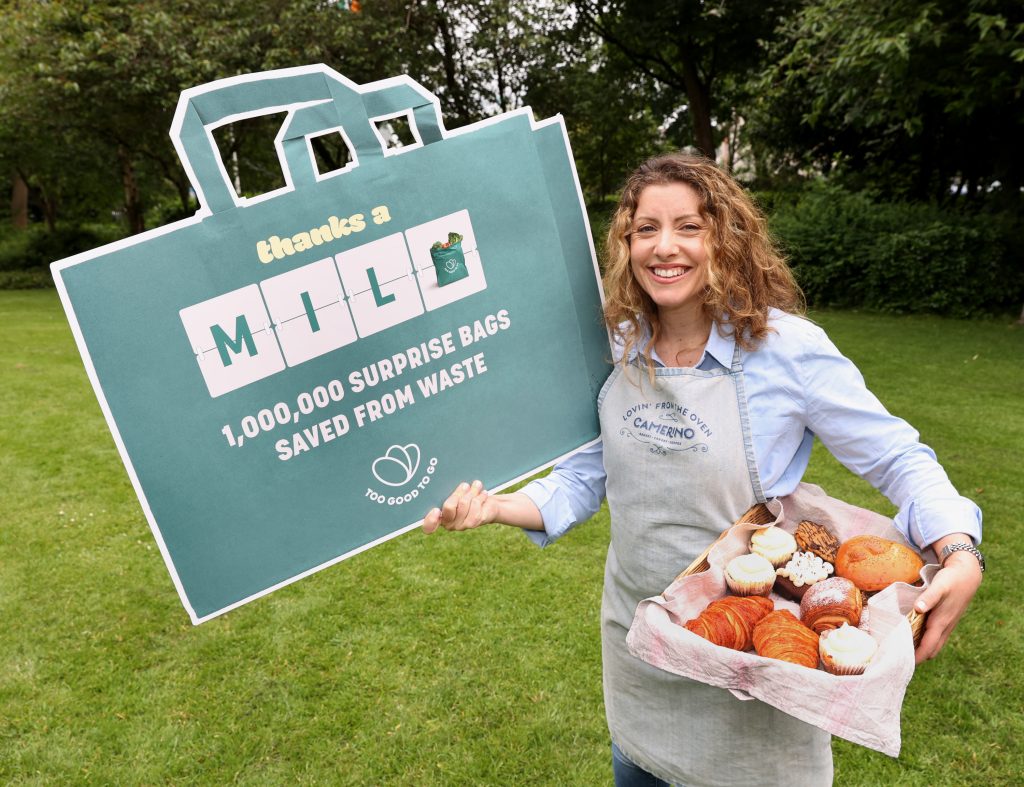
Too Good To Go is a certified B Corp social impact company that connects users with partners to rescue unsold food and stop it from going to waste. With 95 million registered users and 160,000 active partners across 18 countries, Too Good To Go operates the world’s largest marketplace for surplus food.
Since its launch in 2016, Too Good To Go has helped to save over 330 million meals from going to waste, the equivalent to 891,000 tonnes of CO2e avoided.
40% of all food produced is wasted every year, contributing to 10% of all greenhouse gas emissions (WWF, 2021). According to Project Drawdown (2020), reducing food waste is the number one action you can take to help tackle climate change, by limiting the temperature rise to just 2˚C by 2100.



